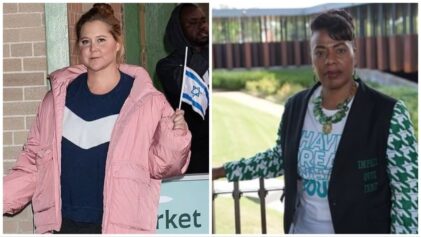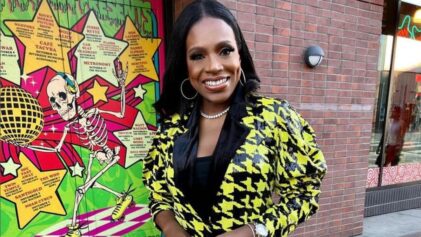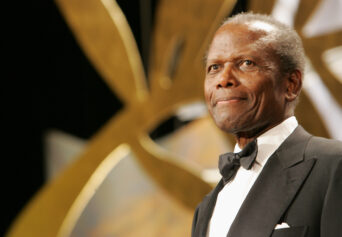Famed singer and civil rights icon Harry Belafonte used the NAACP Image Awards on Friday night to challenge the black community to take a stronger stand against gun violence.
“In the gun game, we are the most hunted,” he said.
“The river of blood that washes the streets of our nation flows mostly from the bodies of our black children,” Belafonte said during the live broadcast from the Los Angeles stage. “Where is the raised voice of black America? Why are we mute?”
Belafonte was presented with an Image Award for his many years of courageous service battling for human rights in the United States and abroad, during the Civil Rights Movement and the many decades since. Belafonte’s 1956 “Calypso” album, which included the signature “Day-O” song, is said to be the first LP to sell more than a million copies in a year in the U.S. He was a major financial patron for the movement, bankrolling the Freedom Rides through the South and also helping his friend Martin Luther King Jr. support his family while King waged his battles against segregation.
Belafonte was presented with his award by Sidney Poitier, another legend who was fighting alongside Belafonte through the years — and also appearing onscreen with him in such films as “Buck and the Preacher” and “Uptown Saturday Night.”
Before his speech, Belafonte, 85, chided Poitier, also 85, for saying during his introduction that the two of them have been working together for the “better part of a century.”
“A century?” Belafonte said, turning to Poitier when he came to the stage.
Belafonte, who was born in Harlem but who lived part of his childhood in Jamaica with his grandmother, has long been an uncompromising voice for equal rights and fearlessness in the African diaspora.
Belafonte earlier in the week told The Associated Press that discussion around the Connecticut school massacre in December seemed to be ignoring decades of urban gun violence. Belafonte said it was important for African-American leaders to participate in the debate over gun control.
“What really concerns me is the ingredients of the discourse,” he said. “The African-American community … where is that community? Where is that voice? I think the black community, the black leadership need to stir it up.”
President Obama has twice mentioned the ongoing carnage in Chicago during speeches as he tries to push gun control legislation — and he put handgun measures in the legislation specifically to impact cities like Chicago. However, many African-Americans have been calling on Obama to get more personally involved in the case of Hadiya Pendleton, the 15-year-old who was fatally shot in a Chicago park a week after performing at Obama’s inauguration.
As Chicago law enforcement officials and community leaders cajole the community into providing information to help find the killer — raising the reward to $40,000 —Hadiya’s pastor said the family hasn’t yet received word on whether Obama will respond to the petition drive for him to attend the girl’s funeral.
But the pastor, Rev. Courtney Maxwell of Greater Deliverance Temple, said Obama did call the family earlier in the week, shortly after the girl was shot and killed Tuesday afternoon while she was hanging out with friends.


